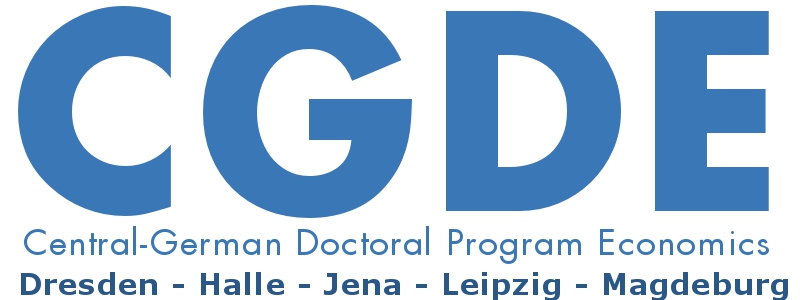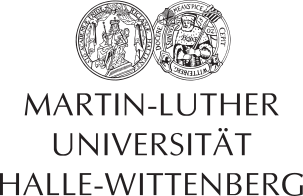Topics in Empirical Corporate Finance
Lecturer: Professor Rüdiger Fahlenbrach (Swiss Finance Institute, Lausanne)
Date: November 13, 2017 – November 16, 2017
Venue: Halle Institute for Economic Research (IWH) – Member of the Leibniz Association, Kleine Maerkerstrasse 8, 06108 Halle (Saale), Germany, conference room (ground floor)
Registration: until October 15, 2017 via email: annett.hartung@iwh-halle.de. The course is designed for at most 15 participants.
Announcement see pdf
Reading list see pdf
Course Description
The Ph.D. class in empirical corporate finance provides an overview of major topics in empirical corporate finance, including capital structure, internal capital markets, risk management, venture capital and initial public offerings, the market for corporate control, and internal corporate governance. Don’t be alarmed if you see the long reading list. This is a topics course, which aims to give you a broad overview over different areas of empirical corporate finance. I will give at the beginning of each class a brief presentation to provide a background and context for a given topic and we talk about a couple of papers in detail. The advantage of the broad, topics-based approach used in this course is that students will be exposed to a wide range of topics, hopefully whetting their appetites for further exploration (on their own, using the reading list). The disadvantage is that the coverage of any given topic will not be as deep or broad as it could be, relative to a course that focuses more narrowly on a few topics.
Prerequisites
I expect you to have some basic knowledge of econometrics and to be able to do some regression analysis using Stata, SAS, or another software of your choice. You are expected to have a basic knowledge of corporate finance at the level of an MBA textbook such as Berk and deMarzo (Corporate Finance) or Brealey, Myers, and Allen (Principles of Corporate Finance). If you do not, I would suggest reading either book in parallel to the lectures.
Schedule of classes:
November 13: 13:30–17:00
November 14: 9:00–12:30 and 13:30–17:00
November 15: 9:00–12:30 and 13:30–17:00
November 16: 9:00–12:30
Additionally, we invite you to attend the presentation of Farzad Saidi (Stockholm School of Economics) in our research seminar on November 13, 2017, 10:30–12:00.
Class Topics:
Session 1: November 13: Introduction, referee reports, and research philosophy
Session 2: November 14: Capital structure 1
Session 3: November 14: Capital structure 2
Session 4: November 14: Venture capital and private equity
Session 5: November 14: Investment banks, IPOs, and brokerages
Session 6: November 15: Diversification and internal capital markets
Session 7: November 15: Risk management
Session 8: November 15: Behavioral Corporate Finance, Networks, etc.
Session 9: November 15: Mergers and acquisitions
Session 10: November 16: Intro to corporate governance
Session 11: November 16: Board of directors
Session 12: November 16: Large shareholders and activist investors
Evaluation
Each teaching session consists of two classes of 90 minutes. I will cover Session 1 (introduction) on November 13. For the other 11 sessions, I would like one of you to present the key findings and approaches of one or two interesting papers in the area. These are marked in bold with “***” in the reading list. I expect students to have a PowerPoint presentation that lasts 15 to 20 minutes per paper (but NO LONGER than 20 minutes per paper). You should also distribute a short-write up of not more than two double-spaced pages on the key findings of each paper for the other students. You should choose a single table that you consider most important in each paper. The presentation and write-up will be graded and will count 40% towards your final grade. Students will be asked for their preferences together with the acceptance to the course.
In addition, there will be one empirical problem set counting 40% towards your final grade. I will distribute the homework at the end of the class, and you will have four weeks to complete it. You have to hand in the homework by December 15, 2017 via email to ruediger.fahlenbrach@epfl.ch.
You will also have to hand in one referee report counting 20% towards your final grade. The referee report should be written as if you were the reviewer for potential publication of the article in a major academic finance journal. Keep in mind that rejection rates in the Journal of Finance, Journal of Financial Economics, and Review of Financial Studies are between 90% and 95%, so that on average, you will give a revise and resubmit at most on every tenth paper you review. Don’t be too positive. I will show you a couple of reports (good ones and bad ones) I have received to give you an idea on what to write and what not to write. Your report should clearly state the paper’s important contribution in the best possible light; critique any shortcomings; make suggestions for improvements; and be accompanied by a short letter to the editor recommending rejection, revision, or acceptance and the reason for the recommendation.
This syllabus contains an extensive list of seminal and recent papers for the topics we discuss. This list is meant to help you delve deeper into a topic, should you be interested and decide to search for dissertation topics in a given area.In addition, I recommend owning these two books if you are seriously interested in empirical corporate finance:
1) Wooldridge, Jeffrey M., Econometric Analysis of Cross Section and Panel Data, 2010.
2) Berk and DeMarzo, Corporate Finance, 3rd edition, 2013.
The lecture notes and other course materials are influenced by those used by Professor Steven Kaplan at Chicago, Professor Roni Michaely at Cornell, Professor Josh Rauh at Stanford, Professor Michael Roberts at Wharton, Professor David Robinson at Duke, and Professor Michael Weisbach at the Ohio State University.























